#ADHD coding
Explore tagged Tumblr posts
Text
youtube
ADHD-Coded Sunny
A 13-minute Youtube video of various scenes showing ADHD-coded moments of It's Always Sunny in Philadelphia, with silent written commentary over the clips.
#it's always sunny in philadelphia#iasip#adhd coded media#neurodivergent coded media#adhd#Youtube#adhd coded#adhd coding#video#videos
3 notes
·
View notes
Text
(That last sentence made me snicker because I am a wee feral who can and will act with these mannerisms.)
After watching Catch and Release, I’ve come to realize something.
Peridot acts much more immature, when in a situation she’s not used to - she’s frightened, she’s aggressive, she loses her social skills. Some have interpreted this as her being childlike, similar to Amethyst’s seemingly “younger” personality in the flashback episodes. But this doesn’t match her previous portrayals, or her mature body type - she’s in no way coded as something that should be treated like a child.
So why does she act like that? Why did Amethyst act like that back in the day? Why would gems act less mature than they usually are? Well…

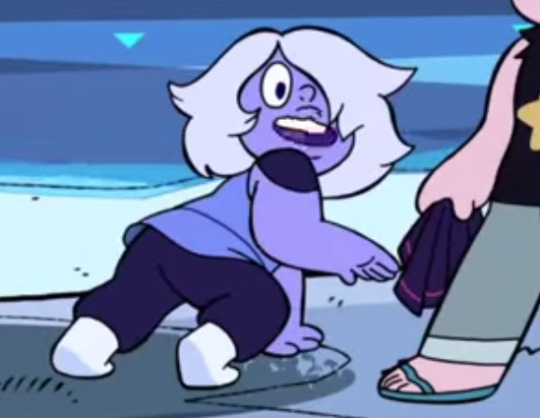

… Look at how they walk.

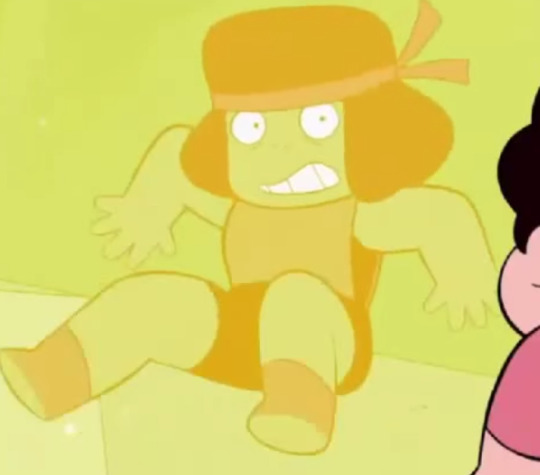
Look at how they act.

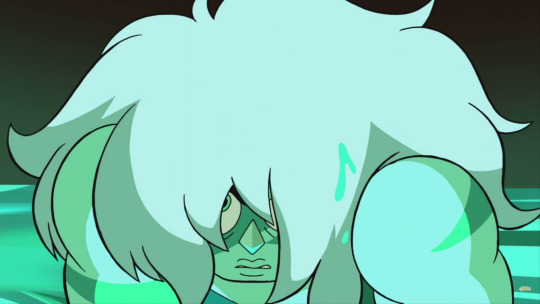

Look at them when they’re taken off-guard, or frightened, or excited.
Gems aren’t childlike.

They’re beastlike.
All of them, in different ways.
They snap their jaws to show aggression, they show an animalistic combination of caution and curiosity when dealing with new objects and places, they even run on all fours when distracted. Fear makes them not just aggressive, but outright vicious and murderous, like mindless attack dogs. They occasionally have feline and canine physical traits, like fangs and glowing eyes. Younger!Amethyst literally went running after a thrown stick.
Amethyst, Peridot and Jasper, all presumably Kindergarten gems, seem to be the most prone to this, while Pearl, Ruby, Sapphire and Rose appear to be more civilized, likely as a result of having been regular Homeworld citizens trying to survive in a very uptight, controlled society for a long time. They’re used to restraining themselves from acting too savage. Lapis has an animalistic mindset ruled by emotion and impulsiveness, guarded by a civilized facade, reflecting her powers and element. She always seems more mentally present, even when upset, because she almost always has the upper hand and thus doesn’t feel the panic of a cornered animal.
Try rewatching an episode with the mindset of “these are extremely intelligent cats and dogs who were taught human-like standards of social etiquette.” It solves a surprising amount of questions regarding their occasional lack of maturity/manners/empathy/etc., unifying the traits normally associated with different human age groups.
Among them, why Peridot turns into a squeaky, slap-y menace when frightened. She’s got the survival instincts of a wild animal, with none of the strength. She’s like a housecat.
Tl;dr: gems have instincts and traits similar to felines/canines. Moments of immaturity happen when a gem hasn’t developed the social skills to deal with a situation in a civilized manner (due to fear, excitement, anger, lack of self-discipline, etc.), causing them to act like wild animals - which is often misinterpreted as “childlike” because we’re not used to seeing adults react in such an animated, uncontrolled way.
#su analysis#su speculation#beast#beastlike#child coded#(they're not bur I want that to show up if someone searches it)#childcoding#…#ADHD coding#bite me.#(Or don't- I can make us some lovely cookies to munch on instead.)
20K notes
·
View notes
Text
Can we talk about how in the show Lestat and Armand are framed as narrative foils. Armand and Lestat who are both so aggressively theater kids, but Lestat who acts, who draws in the attention and holds it, and Armand who directs, who shapes and manipulates the narrative. Armand and Lestat's obsession with Louis and his love and frustration with his melancholy over Lestat and Claudia respectively. Who both felt second in his heart. Who fear loneliness above all else. Lestat taking what he wants to excess - no impulse control, and Armand letting things happen to him and trying to manipulate situations to get what he wants but never taking it. Armand, who even in the end, so much more powerful, never physically imposes himself on Louis. Armand who seeks complete control in subtle insidious ways. Lestat who seeks control in the physical. Armand and Lestat brought into vampire life in horrifying ways tangled up with SA. Armand who still talks about his maker with reverence, Lestat who hates his maker. Armand who pours all of himself into his partner, willing to shape himself into what they desire but ultimately needing control to feel safe. Lestat who pours all of his love into his partner but unwilling to change himself and ultimately cedes control in moments to maintain the relationship. Armand who clings to his breaking apart relationship for 77 YEARs, Lestat who let Louis go. Lestat and Armand who watch Claudia die, but one as a father and one as a murderer. Lestat and Armand so intense in their love but Lestat so painfully external and Armand so painfully internal as characters. Both constantly acting and putting on a face. Lestat as Mozart and Armand as Salieri (in the flashback scene!). Armand who loves routine and structure and repetion, Lestat who craves change and excitement. The calling cards are echos, who learned from who. Armand teaching Lestat the vampire gifts, Lestat teaching Armand a new way to live. on and on....
#I'm tired of ship content#Give me complex narrative foil content!! give me the haunting and doomed by the narrative content! Give me the analysis of the fucking prop#and sets and amazing costume design#there is so much in this show and no one is talking about it!!!#They are so two sides of the same coin coded#autism vs adhd coded#my toxic wives whom i love#lestat de lioncourt#lestat#armand#the vampire armand#amc iwtv#iwtv#armand iwtv
2K notes
·
View notes
Text
Eddie, during a live-stream: Stevie, what’s the worst drug you’ve ever done?
Steve: *looks at the camera and then gives Eddie a look that clearly says ‘I’m not fucking answering that.’*
Steve: No, actually. I will answer. It was Adderall when I mixed up our medications on accident.
Eddie: Oh, yeah. I remember that. You felt normal.
Steve: Yeah, I was fine. Nothing happened.
Eddie, making eye contact with the camera: Yeah. And we chose not examine that any further.
#Steve’s real answer is ketamine#last time Eddie pointed out that Steve was a little ADHD-coded he said: I don’t have time for that#and then they literally never talked about it again#eddie munson tiktok saga#steve harrington#eddie munson
2K notes
·
View notes
Text
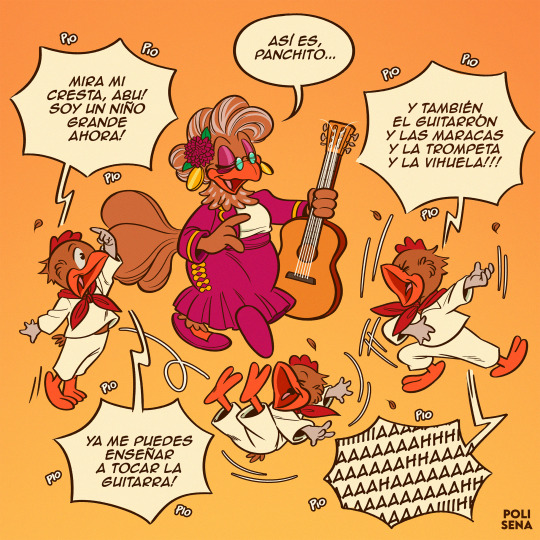

Panchito learned to play the guitar with his abuelita and that is canon and so important to me!!! 😭💖(Mickey Mouse Fun House threw new Panchito Pistolas lore on my face and I HAD TO DO something about it!!!)
Panchito: LOOK AT MY COMB, GRANDMA! I'm a big kid now! You can teach me how to play the guitar already! And also the guitarrón and the maracas and the trumpet and the vihuela!!! *GRITO* Grandma: Indeed, Panchito...
✨ Ko-fi ✨
#the three caballeros#duckverse#ducktales 2017#panchito pistoles#mickey mouse funhouse#disney#I love my adhd coded rooster son#polisenaart
742 notes
·
View notes
Text

They're the best friends duo ever
#my art#drawing#i'm trying a cartoon style!!! i love cartoons artstyle!!!#one piece#one piece fanart#luffy#monkey d luffy#nami#i don't ship them but that can be for you too#lunami#they're so sibling coded in manga lmfaoo i love them so much#“c'mon Nami!! It will be fuuun :)”#anime#anime fanart#that's actually a wip but i like it!!#i forgot to paint Nami's ear#i have adhd pls excuse me
788 notes
·
View notes
Text
*Wade drunk 3 energy drinks and has the feeling of I need to go outside and do something or my skin will melt off at 7pm at night*
Wade: C'mon honeybadgerrrr can we go out somewhere? Your ADHD boyfriend needs enrichment.
Logan: Why can't you go on your own? You're a grown ass adult.
Wade: 'Cus I wanna go out with youuuuu.
Logan: Are you basically asking me to take you out on a walk?
Wade: *processing slightly* Yeah basically!
Logan: Wow, alright then.
#deadpool 3#deadpool and wolverine#deadpool#wolverine#poolverine#logan howlett#logan#wade#wade wilson#deadclaws#i will now consistantly turn my adhd moments wade coded for funsies#wolverine x deadpool#deadpool x wolverine#logan howlett x wade wilson#wade wilson x logan howlett#i wrote this one like a few weeks ago cus i did this exact thing#but on my own#i drunk 3 energy drinks and then went out for a few hours in the dark#it was nice
209 notes
·
View notes
Text

trying 2 figure out link from my fic, he's unwashed and feral
3K notes
·
View notes
Text
I just realised that all the media I adore has some level of autistic/neurodivergent coding and it's been that way since I was a child.
And like, oftentimes their different way of perceiving and being in the world is the driving force of the story/and or a crucial element in it.
There’s the canon example of the entire Camp Halfblood (ADHD), where the ADHD is literally what keeps the characters alive.
There's Dean Winchester (ADHD) whose hyperfixations are typically masculine (as well as geeky) and who never sits still, with the added bonus of Castiel (Autism), who Dean just... accepts, in a way I rarely see.
Then there’s the infamous Will Graham (Autism) whose hyperempathy is litterally the focal point of the entire narrative.
We have Haru from Free! (Autism), whose special interest (swimming) is the motivating factor for several other characters.
Reki and Langa from Sk8 the infinity (Autism), who share a special interest and grow a special bond because of it.
There's Sai from Hikaru No Go (Autism), who trancedented time and space to play Go (special interest) and whose special interest sets the story into motion.
We have any version of Sherlock Holmes (AuDHD), who's brilliance I attribute to a mixture of hyperfixations and special interest in crime solving. His conflicts with society and disregard of social norms are a central theme as well.
There's Anne with an E (Autism), who loves words and stories and speaks before she thinks (where all major problems arise due to her lack of understanding for social norms)
We have Pat and Pran from Bad Buddy (ADHD + Autism), like I dunno, I just really felt that vibe.
There's Beth Harmon from Queen's Gambit (Autism) with her special interest in Chess.
And like, the list goes on: Daryl Dixon, Jon Snow, Kotaro from Kotaro Lives Alone, Will Treaty from the Ranger's apprentice, Hal from the same author, Katniss Everdeen, Si-eun from Weak Hero Class 1, etc.
Don't get me wrong I've consumed plenty of stories without characters coded this way, but all the stories that truly resonated with me? Neurodivergent, all of them.
It's probably because the focus on social norms/hierarchy always seemed foreign to me. Eg. I like Skam but it's like a view into a completely foreign world where people function differently.
#headcanon#autistic headcanon#you don't have to agree#camp half blood#percy jackson#dean winchester#castiel#supernatural#will graham#nbc hannibal#hannibal#free!#free! haru#sk8 reki#sk8 the infinity#sk8 langa#sk8 anime#bbc sherlock#sherlock holmes#sherlock fandom#anne with an e#beth harmon#queen's gambit#bad buddy#actually autistic#neurodivergent#neurodiversity#autistic coded character#adhd#autism coded
522 notes
·
View notes
Text
Ghost Band on crack
cr:@nocturnalghostss
Don't worry, they are fine
#they are so adhd coded#the band ghost#ghost band#ghost bc#papa emeritus iii#nameless ghouls#papa emeritus iv#aether ghoul#rain ghoul#ifrit ghoul#dewdrop ghoul#swiss ghoul#zephyr ghoul
764 notes
·
View notes
Text
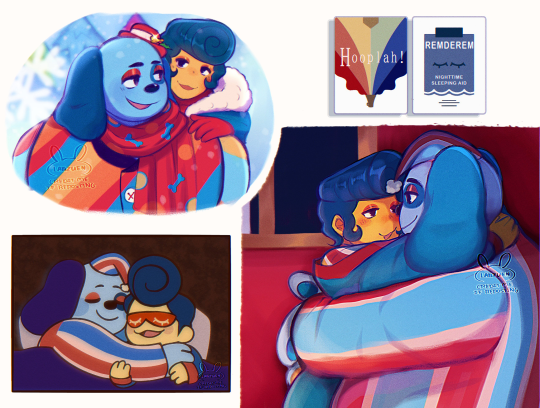
Happy Homewarming! 🐾🍎
#I'm so ill for them#They live rent free In my head it's been a year gET OUT /lh#theyre so ADHD x Autism coded#welcome home#welcome home fanart#wally darling#barnaby b beagle#wally x barnaby#barnaby x wally
481 notes
·
View notes
Text
Wheatley has ADHD
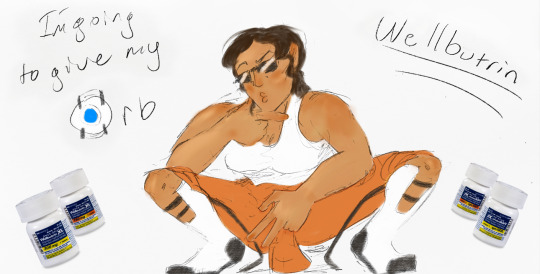
It’s a common enough occurrence that it probably deserves its own trope — aliens, robots and any other nonhuman character almost always end up with autistic traits. It’s because writers take a nonhuman character and go ‘well, how do I make this character register as nonhuman, but still human enough that audiences will like them?’ And the answer is making them neurodivergent. I’m not personally inclined to say that this is a good or a bad thing, though I can see how it might be taken that way.
However, some authors like myself do it intentionally, to demonstrate how neurodivergent people can end up ostracized.
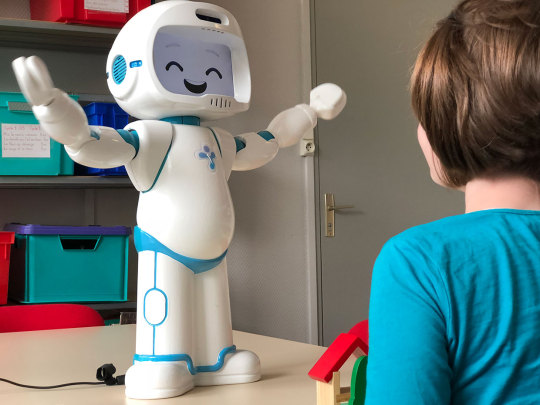
Some examples of common traits that are autistic-coded and writers give to nonhuman characters are as follows:
-difficulty understanding metaphor, sarcasm or exaggeration
-overly blunt in communication
-unawareness of others emotions/incorrect reaction to said emotions
-difficulty realizing their own emotions
-need for a strict schedule in order to be happy
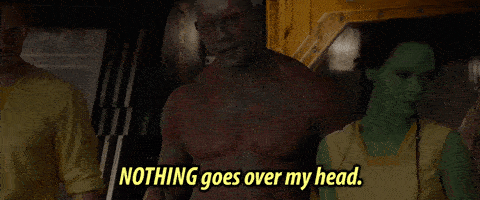
Of course, there’s more out there, but I’ve seen these pop up quite a lot.
However, the Portal series’ fantastic writing team did not follow these stereotypes with their robots, and that’s what I would like to cover today.
I would go over GLaDOS in relation to this idea, like she clearly understands sarcasm, but she doesn’t quite fit for reasons that would be obvious to anyone who’s played through Portal 2. I’m here to talk about Wheatley, the other main robot we get to know in Portal 2.
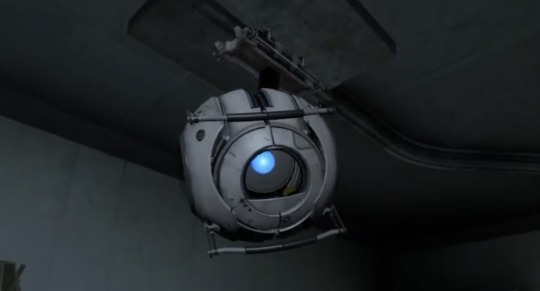
Wheatley is not autistic coded. He has no problem speaking to strangers or making eye contact. He enjoys sarcasm almost as much as GLaDOs, and so on and so forth.
However, Wheatley is most definitely neurodivergent-coded, and it’s fascinating because for once, maybe for the only time ever in popular media that I’ve ever noticed, a robot is adhd-coded instead of being autistic-coded.
What do I mean by that? First of all, if you haven’t finished Portal 2 go do it now. It’s relatively cheap on Steam and it’s amazing. Moving on — it all stems from what we’re told Wheatley is, during the betrayal scene with GLaDOS. Now to preface this, GLaDOS is a liar. You can take most of what she says with a grain of salt. But, what she says is all we have officially to go off of.
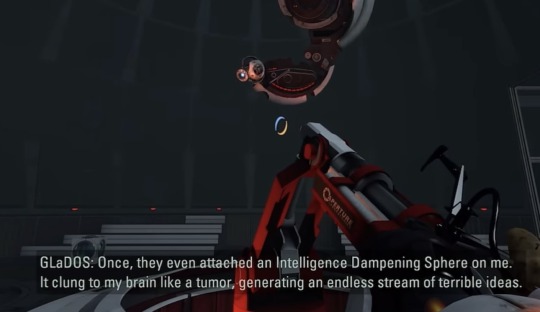
To add further context to this line, the personality cores or “Aperture Science Personality Constructs” (the line of robots that Wheatley is a part of) were specifically built in order to be plugged into GLaDOS’ systems to slow her down and to keep her from killing everyone in Aperture. In the first Portal game, Chell, the player character, incinerates the four ‘successful’ cores that supposedly were the last ones needed to stop GLaDOS. However, given that the character has to travel through an empty facility to do so, it’s clear that they weren’t nearly as successful as the engineers had thought. Later, as core after core was built and none of them worked to stop GLaDOS, Aperture was needing robot maintenance of some kind since all of their human faculty were being killed, fired due to financial ruin, and/or quitting, and so the personality constructs were repurposed to try and keep the facility from falling apart.
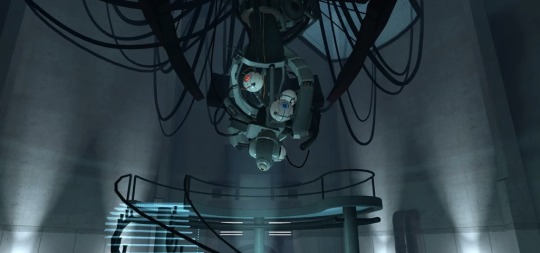
Aside from GlaDOS and Wheatley, we don’t see any “non-corrupted” cores. And even both of them are corrupted, with GLaDOS being 80% corrupted and Wheatley assumedly 25%, after doing some quick math of the boss fight. This would normally affect my ability for confident analysis, but luckily in this case I don’t need them to prove that good ol Wheatley is adhd-coded.
Because right from the get-go, “generating an endless stream of terrible ideas” sounds pretty damn adhd to me, as someone who has both inattentive and hyperactive adhd myself. Now, that’s not to say every idea a person with adhd has is a bad one. That’s not even the case with Wheatley, despite it being what we’re told, because again, GLaDOS is an unreliable narrator. It’s Wheatley’s ideas that keep her from killing Chell with turrets or neurotoxin. He’s the one who gets Chell to dismantle those systems. Those are clearly not bad ideas.
But what about other adhd traits? Having an endless stream of ideas isn’t even on a symptom list of being adhd, it’s usually just a side effect of everything else going on. Well, Wheatley has plenty of them.
Hyperactive-type adhd symptoms include but are not limited to;
-fidgeting
-excessive physical movement
-excessive talking
-impulsive behavior
-restlessness/impatience
Oh but how can a robot ball fidget or have excessive physical movement, you may ask. Well. This is the most expressive ball I have ever seen in my life. Wheatley is constantly moving, shifting panels, popping his eye out, spinning in his casing and so forth. The excessive talking one is easy, my younger brother (also an adhd yapper, who has no room to talk) was trying to throw Wheatley over the railing into the bottomless pit beneath Aperture “because he was yapping” too much. This is unusual for a robot character (outside of the Portal series) whereas they tend to speak when spoken to. Wheatley is generally impulsive, but this is especially noticeable when he’s hooked up to the facility in the GLaDOS chassis. After PotatOS calls him a moron, he proceeds to punch her and Chell into the abyss below without thinking about it, reacting out of anger until he realizes they’re about to drop, right before they do. Interestingly, that sort of impulsive rage reaction is more often seen in monster characters, like perhaps a werewolf situation. It sort of adds to the framing that now Wheatley is in control of the facility, he has become something monstrous. Now, judging his patience level accurately is difficult, given that in the beginning he’s in a high-stress, deadly situation and later, when he’s in the chassis, he’s being affected by symptoms of drug withdrawal. However, he is impatient, such as when he’s playing the recorded sound of knocking on a door at the beginning. Granted, he’ll go on ‘knocking’ forever because it’s necessary for the story, but he speaks up every couple of minutes asking if you/Chell are going to open the door already. Again, this is unique for a robot character, as they tend to wait on a player or another character’s actions before responding to it, rather than initiating.
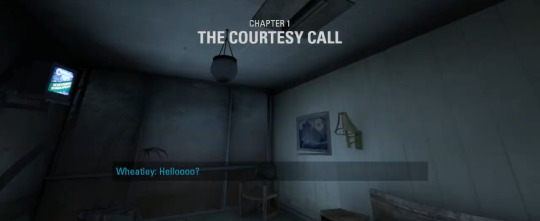
Impressively, these are not all the symptoms Wheatley demonstrates. There is another form of adhd, known as Inattentive-type adhd. The symptoms can include the following;
-Short attention span
-Overlooking details
-Careless mistakes
-Inability to stick to tedious tasks
-Difficulty organizing tasks
-Constantly changing tasks
-Difficulty listening to and carrying out instructions
For having a short attention span, this is again, difficult to determine for Wheatley in a normal setting. In the beginning he’s mostly able to focus, but he’s in a life-or-death scenario. However, he does ramble on about things that have no relevance to what he and the player character are doing, such as when he’s telling the player character about the many jobs he’s had around Aperture and been subsequently released from. He definitely has issues overlooking details, such as when he and Chell are supposed to be dismantling the neurotoxin facilities. While he’s busy ‘hacking’ a computer that may or may not even regulate the facility in the first place, Chell dismantles the generator and he doesn’t even realize she’s doing it at first, because he’s distracted listing off the hardware of the computer. As for careless mistakes, again, this could be simply the situation he’s in, but he definitely makes them. Like when he’s transporting the relaxation chamber in the first chapter, he runs into an unbelievable amount of other relaxation chambers, tearing Chell’s apart. Or even when he’s supposed to be guiding her around Aperture but he dips into wrong corners and has to recorrect. He most visibly has difficulty with tedious tasks when he’s in the chassis, as the facility is literally falling apart because he didn’t bother reading the manual or taking care of the massive amount of upkeep the facility requires. But again, he’s suffering symptoms of drug withdrawal as well that could be affecting his ability to do that. However, given his descriptions of his job loss, mentioned above, we can gather that this is likely an issue he had before ever being a part of the core transfer. This also is in line with difficulty organizing tasks. As for constantly changing tasks, again, he has somewhat better focus in the beginning because if he doesn’t he’ll die, and later he’s exceptionally distracted by a need to test. But even when he should be consumed with the need to test, and he does watch Chell for most of it, he does stop watching randomly at times to do… Who knows what. When it should be the only thing he can focus on. As for difficulty listening to and carrying out instructions, again, the facility falls apart and Wheatley kept being fired for similar, if not the same reasons.
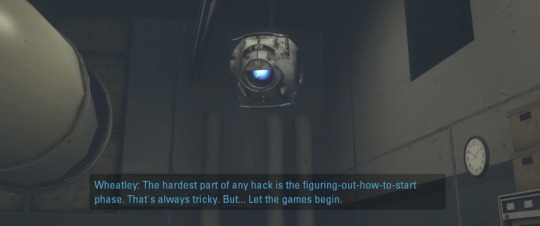
So. That covers basic symptoms and how Wheatley fits pretty much all of them. But, a lesser known side effect of adhd is that it can easily lead to the development of other neurodivergent disorders such as anxiety and depression. Adhd is also linked to something known as emotional dysregulation. Wheatley clearly exhibits signs of anxiety. He’s terrified of dying, and says as much at several points. Not only is he especially scared of dying, but he’s scared of judgment, too. He’s constantly trying to seem more important or smarter than he is, and even though Chell is a silent protagonist, when he takes over the facility before being affected by the testing withdrawals, he assumes she’s been secretly plotting against him the entire time. Depression is more difficult to spot in Wheatley, as he’s not lethargic, but, again, a high-stakes situation can allow a person to mask their symptoms for a brief period out of self-preservation.
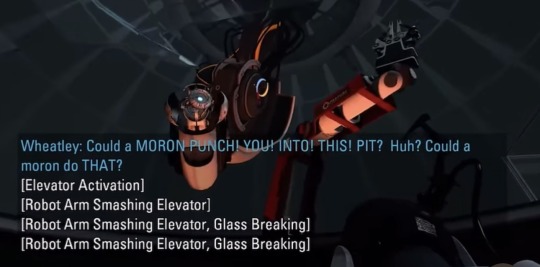
However, I do want to point out he clearly displays emotional dysregulation, and not in the way one might expect from a robot character. Wheatley is exceptionally sensitive to criticism. When GLaDOS begins her spiel about him being an intelligence dampening sphere, he moves as far away he can from her, turning his back so he doesn’t have to look at her. He even goes so far as to say “Not listening!” while she’s saying it. Then when she calls him a moron, he reacts violently, in a way he hadn’t so far in the game before that moment. He smashes her through the glass of the elevator and then, when she proceeds to call him a moron again, is when he smashes PotatOS and Chell into the pit. However, he doesn’t even need to even be actively insulted to react to perceived insults as just as much of a threat to his psyche. As mentioned earlier, despite Chell being a silent protagonist, and in some ways because Chell is a silent protagonist, Wheatley assumes that she’s been plotting against him from the start. Her perceived attacks against him are most especially notable during the boss fight. He points out that she’s always quiet, assuming that she’s “silently judging” him. He points out that she didn’t catch him when he fell off of his management rail in the beginning, and that she didn’t warn him that she was the one who killed GLaDOS.
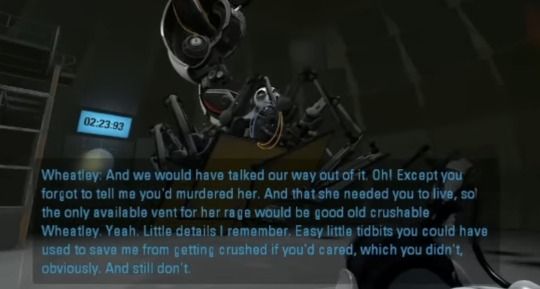
All in all, Wheatley is a beautifully three-dimensional character, not in spite of being a robot, but rather, in some ways, because of it.
#I mayyyy come back and edit this some more later#but for now have this#English major strikes back#chell portal#wheatley portal 2#portal 2#character analysis#adhd coded
166 notes
·
View notes
Text
Let's talk about Impulse 1995 and the theme of fostering and family.
Reading Impulse 1995 as one long story about the challenges and heartbreak of being a foster child under unusual circumstances AND as a story about home, family and love in general really is an experience - not just with Bart as the main character but also his friends who also have broken homes and experiences involving deep loss themselves as they navigate a world as vulnerable teenagers with complicated homes. Specifically Carol and Bart's adjacent mirroring in their foster placement and experiences with home is quite interesting when examined side-by-side and it makes sense why they end up as best friends.
Carol's brother was put in a place through sudden tragedy with the loss of their parents to be the bread winner and caregiver for Carol and their little sister.
We never see the conversation that led up to Max taking in Bart - but as the result of several tragedies Bart was in a position where only Max was able to take him in as a mentor and a care taker, not a parent to start.
So we have these two teenagers who were orphaned in different ways with deeply contrasting back histories find each other as best friends.
Carol remembers her parents and their love - Bart never got this and only got a brief moment with his mother.
Carol is living with her brother because he is as far as we know the only family she has to rely on - Bart meanwhile has his Grandmother and his cousin through her (Wally) however they each are incapable of taking him in due to varying valid circumstances.
Carol is raised in a household of love - Bart is in (to start) a household of obligation where Max's initial intentions were never to actually raise Bart but to simply be a mentor and teach him how to use his speed and acclimate to the real physical world.
The circumstances around Bart and the affection he receives from Max do change dramatically as the series progresses (and Helen has a major part in that we cannot exclude her) and he finally gets to experience a home filled with love.
Then like Carol - it changes dramatically and he loses Max and Helen and he has to be raised by people he cares deeply for but are not his parents (though they eventually do say the love Bart like a son it doesn't start that way).
We also see more characters other than Bart and Carol as art of this unifying theme of home, family, love, fostering, obligation etc and each with their own unique place within it. Preston and his mentally ill mother who beat him brutally and his complicated feelings towards her. Wilfred "Evil Eye" Parker and his insistence on growing up to be a villain so he can finally get his father's (and grandfather's) approval. Mike Ringer and his own feelings of loss and redirected anger towards his own father when his mother died.
White Lightning and her very close loving relationship with her mother where they made a home on the road
And also how can we forget Max Mercury and his daughter Dr. Helen Claiborne and their fractured and difficult relationship as absent father and daughter and everything that led up to Helen existing in the first place.
Impulse 1995 is a compelling series about forgiveness, fostering, finding home and love when there was neither to start including loving oneself and forming a community around friendship with an unintentional unifying theme.
Naturally this is not the only theme within Impulse that takes the spotlight but it is the one we're focusing on in this post.
#impulse 1995#dc comics#flashfam#bart allen#impulse#my writing#meta#foster homes#fostering#themes of adoption and fostering in the comic medium#we're not getting into bart's autism and or adhd coding today
160 notes
·
View notes
Text




[ my favorite neurodivergent coded characters 14/♾️ ]
#across the spiderverse#into the spider verse#spiderman#spider man#spider gwen#gwen stacy#miles morales#hobie brown#spider punk#pavitr prabhakar#spider man india#adhd coded character#adhd coded#adhd character#adhd#autism coded#autistic coded character#autistic coded#autism#audhd coded#audhd#neurodivergent#neurodiversity#moodboard#edit#my edit#all spider-people are neurodivergent and you can’t change my mind#spiderverse
199 notes
·
View notes
Text
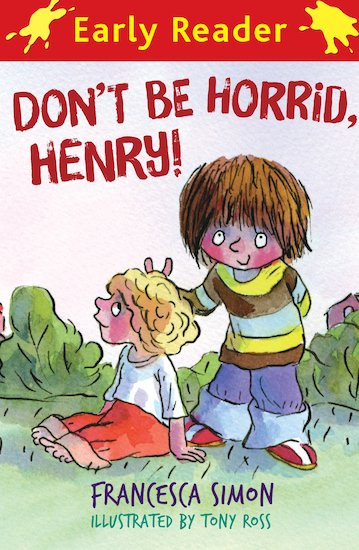
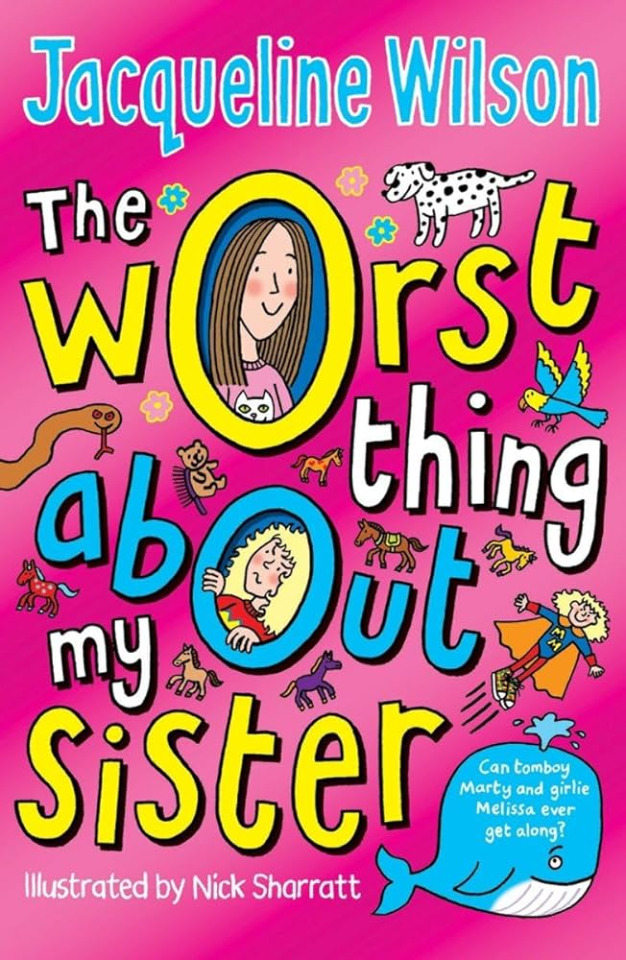
Shoutout to iconic british kid's books that are framed like you're supposed to pick one of two siblings to side with and hate the other one, but when you read them as an adult you realise the parents are just horribly emotionally abusive and pitting the siblings against each other by making them into the golden child and the scapegoat, and they're both victims, and the parents just never get called out on this or face any consequences or learn the error of their ways at any point.
#horrid henry#francesca simon#the worst thing about my sister#jacqueline wilson#also the child that's treated as the worst naughtiest child ever is in hindsight just autistic coded and/or ADHD coded and punished for it
867 notes
·
View notes
Text

*Shakes them like a snow globe*
#its so them coded#daniel vs Armand is just ADHD vs Autism rap battle#i feel like Armand would kinda be stunned by Daniels old man rizz#like yes hes used to messy painful romance so the sight of Daniel doing literally any domestic thing would make him need to sit down#interview with the vampire#iwtv#iwtv season 2#amc iwtv#daniel molloy#devil’s minion#eric bogosian#the vampire armand#armand x daniel#armandaniel#assad zaman
180 notes
·
View notes